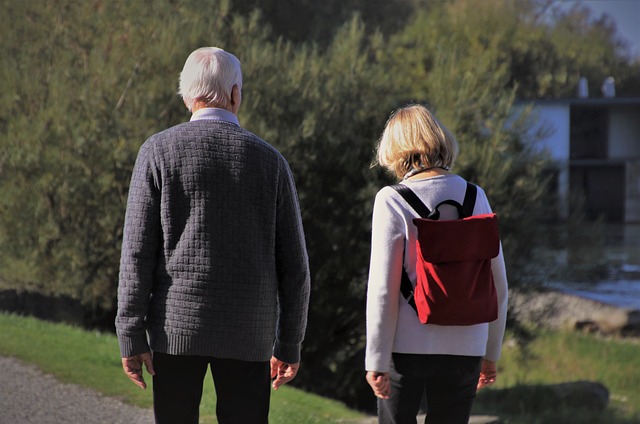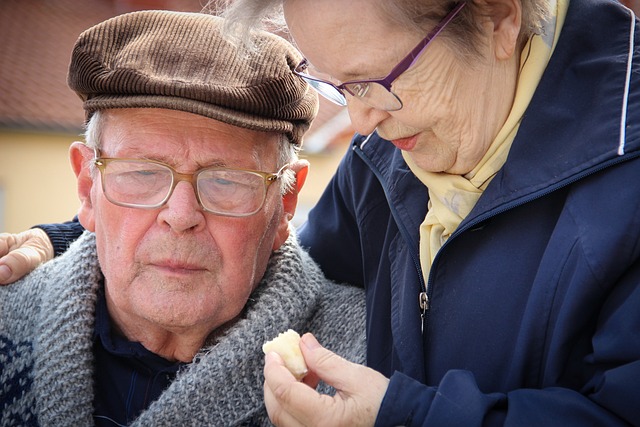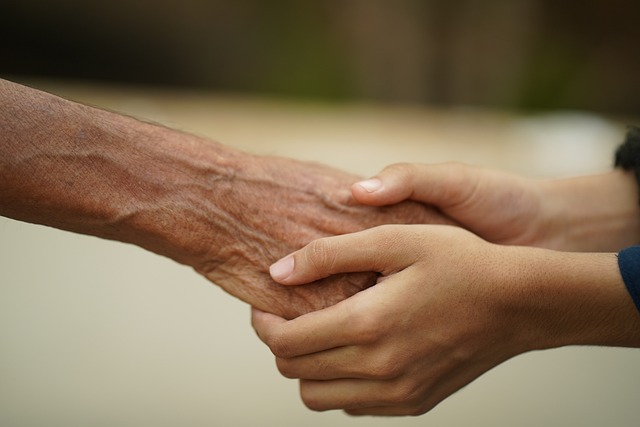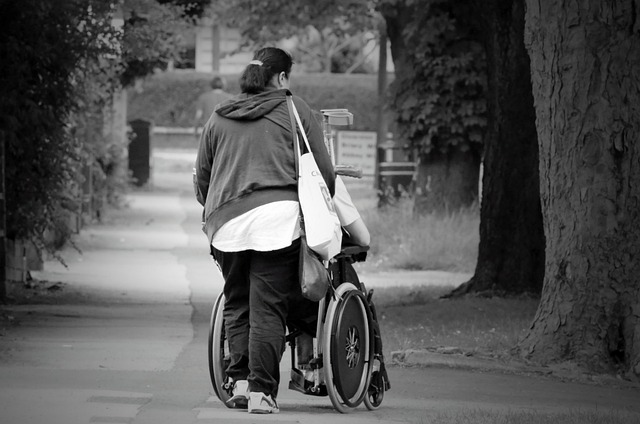
It’s actually a nice idea to be cared for at home and looked after 1:1 for the rest of your life. 24-hour caregivers from abroad make this possible – but in everyday life they are confronted with many challenges. For example, in the publication “We just want some rights”, Amnesty International calls on Austrian decision makers to extend the minimum wage and the maximum working hours to all 24-hour caregivers, to strengthen controls and to ensure counseling and support in cases of discrimination and abuse in the workplace.
THE SHORTAGE IN THE NURSING SECTOR HAS NOT ONLY BEEN NOTICEABLE SINCE THE PANDEMIC
In Austria, there is a shortage of skilled workers in the nursing field: People are getting older, interest in the nursing profession is declining, and the need for long-term care is increasing. 24-hour caregivers are more in demand than ever. Not least because places in retirement and nursing homes are in high demand and often involve waiting times – the demand is clearly higher than the number of available caregivers or care places.


In 2007, 24-hour care was legalized: 24-hour individual care, at home in the familiar environment. This includes assistance in daily life, management of the household and care for clients around the clock. The definition of the tasks according to the International Labor Organization (ILO) can be read here, but some of them include cooking, cleaning, serving, and washing – and for almost 24 hours per day (minus set breaks). Seven days a week. Some weeks at a stretch. With no weekends off or time off before returning home for a few weeks. The relatives cannot take over the tasks of the 24-hour caregiver. They go to work. Full time. 40 hours a week.
A SYSTEM THAT MAKES EXPLOITATION EASY
Around 60,000 24-hour caregivers work in Austria. More than 92 percent are female and over 98 percent are migrants. Many come from Central and Eastern Europe, most of them from Romania and Slovakia. The Amnesty International report states that the average hourly wage in 2021 was around 9 euros, compared with an average of 14 euros per hour for hospital workers in similar jobs. According to another source, in 2021 the daily wage was between 25 and 55 euros, depending on the agency. That means an hourly wage of two to three euros.
Yet 24-hour caregivers do quite a lot: They are domestic workers – living with full board in the household of their clients and taking care of them. Hardly any Austrian citizen would work under these conditions for the hourly wage mentioned. But what motivates 24-hour caregivers to come to Austria for this work?
MORE MONEY TO SURVIVE
What does “voluntary work” actually look like when poverty in the home country forces someone to earn more money elsewhere? To be able to survive. Accordingly, 24-hour caregivers come to Austria to work due to financial hardship and poverty, and a lack of job offers, in the home country. The higher earnings in Austria are tempting, and at whatever the cost. The fact that external factors motivate people to work as 24-hour caregivers away from home is also described by the Romanian caregiver Nadia in March 2021 in an interview in the Amnesty International report:
“I have been working in Austria for six years. I want to help my family at home. I have a daughter. She has a three-year-old boy. My grandson lives with a disability. I help my daughter and grandson because my grandson will need surgery sooner or later. My son-in-law has been unemployed for five months. Four of them have 400 euros a month to survive. My family in Romania depends on me and my work in Austria. It’s difficult for me to be separated from my family for a month, but it’s the only way so we all have enough money. [I work] one month [in Austria] to earn money for the family. One month [I am] in Romania [helping] my daughter and her family.”
AGENCIES DO NOT ALWAYS ENSURE FAIR WORKING CONDITIONS

In September 2022, 917 agencies providing 24-hour caregivers were registered in Austria. In general, these agencies suffer from a bad reputation, even if they carry quality seals*. About half of the agencies are said to be okay, the other half to be classified as questionable*. The agencies mostly employ self-employed 24-hour caregivers who live with their clients in the same household in two- to four-week rotations. The caregivers are registered and socially insured. The wages and the exact services offered are decided by the agencies*.
Agencies that pay attention to fair conditions and wages have nothing to reproach themselves for. If living together in the system works, the people being cared for, their relatives, and the caregivers benefit. However, living together under one roof also harbors potential for conflict. If the chemistry is not right, there is often disappointment. In some areas, overwork and excessive demands take over. Little to no rest, language barriers, client rejection and social isolation are not uncommon – this is not a rosy outlook. Many caregivers feel exploited and exhausted with physically ailments from all the work – no wonder, as few 24-hour caregivers would come to Austria for these working conditions if they could hold a job in the same pay grade in their home country.
Many of the 24-hour caregivers come to Austria from Eastern Europe via backers – typically, they very little or no knowledge of German. The caregivers are officially registered with the authorities and the Chamber of Commerce. The registration – due to language barriers – is often done by the intermediaries or the respective household. Some employers take advantage of these barriers and the dependence of the caregivers. Passports are no longer returned which prevents the caregivers from going home.
DEMAND FOR FAIR TREATMENT AND STRICT PENALTIES FOR THOSE WHO VIOLATE LABOR LAWS
The demands for a minimum income according to the collective agreement, regulated working hours, maximum working hours for 24-hour caregivers, vacation entitlement, social insurance coverage, continued payment in case of illness, unemployment insurance, and increased controls are becoming louder and louder. There are also calls to ensure counseling and support in cases of discrimination and abuse in the workplace.
The issue of exploitation of caregivers from abroad cannot be ignored. Even though in many cases people live together harmoniously and everyday life consists of give and take, there are numerous reports in which this is not the case. Caregivers deserve to be treated and paid fairly. This way they can do their job without being exploited. At the same time, employers of caregivers who violate labor laws should be held accountable.

Translated by Emily Schiffer
#24-Stunden-Betreuerin #Langzeitpflege #Zwangsarbeit #moderneSklaverei #AgainstHumanTrafficking #GegenMenschenhandel #EndExploitation #EndTrafficking #HopeForTheFuture #Österreich
